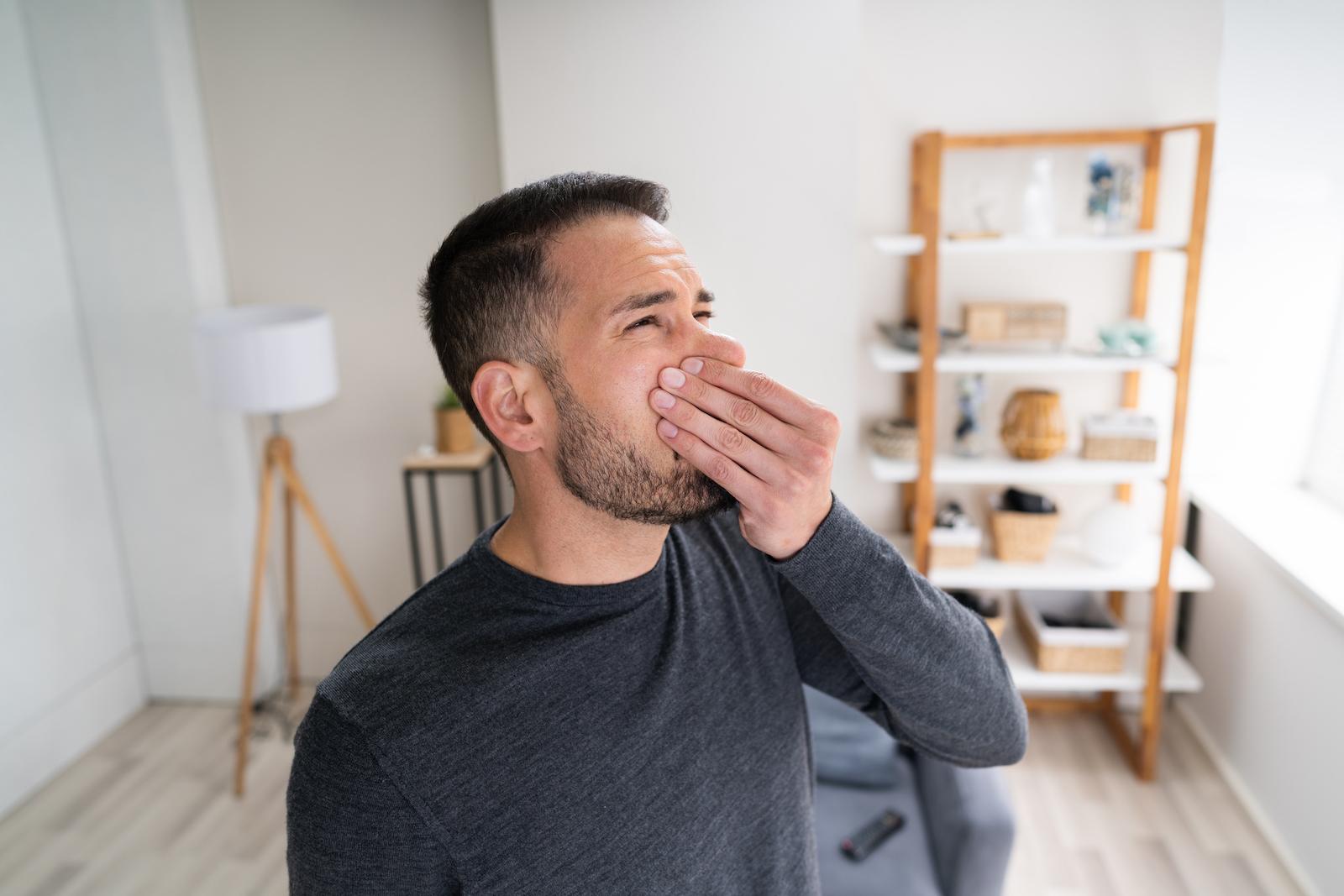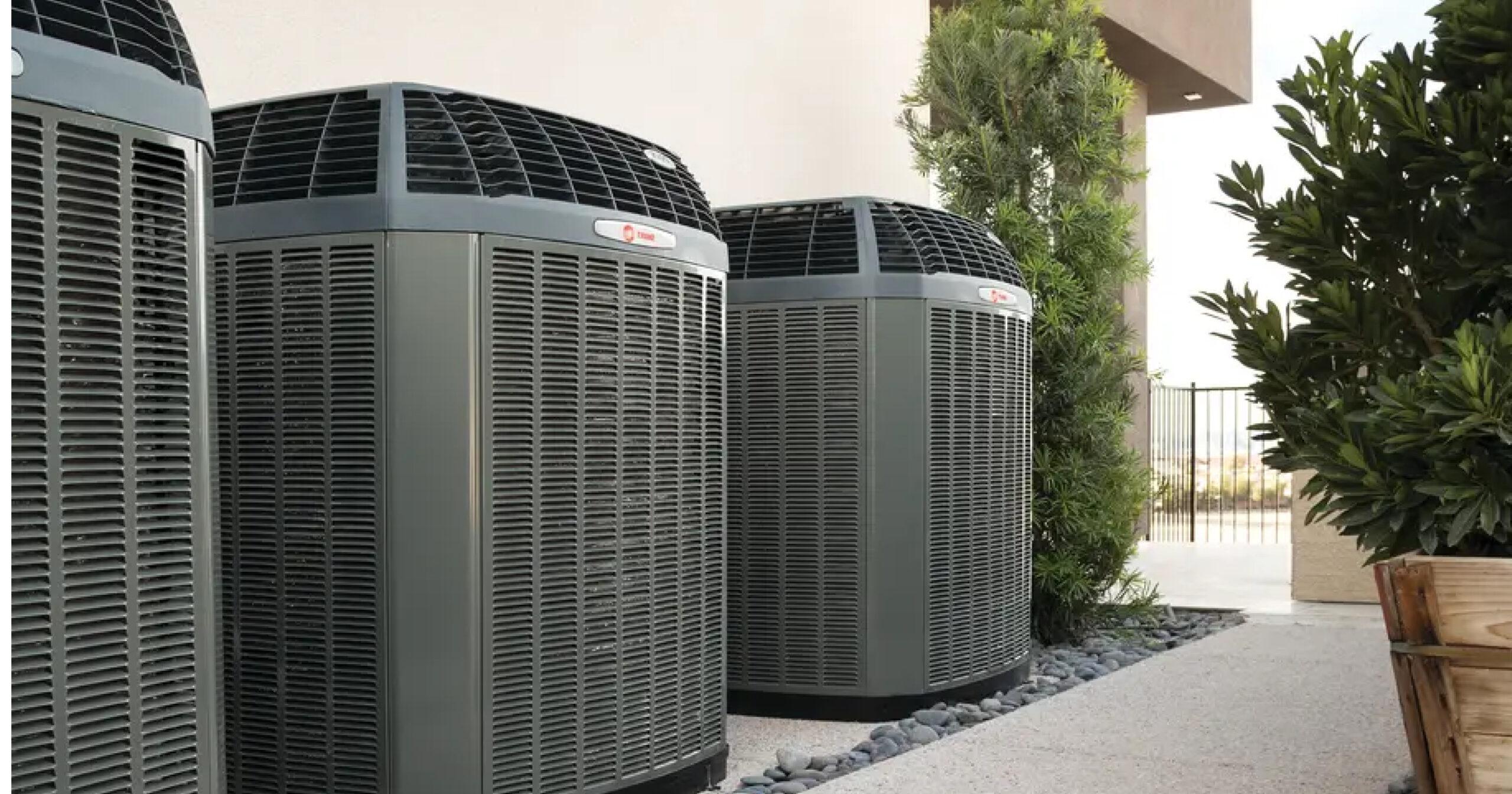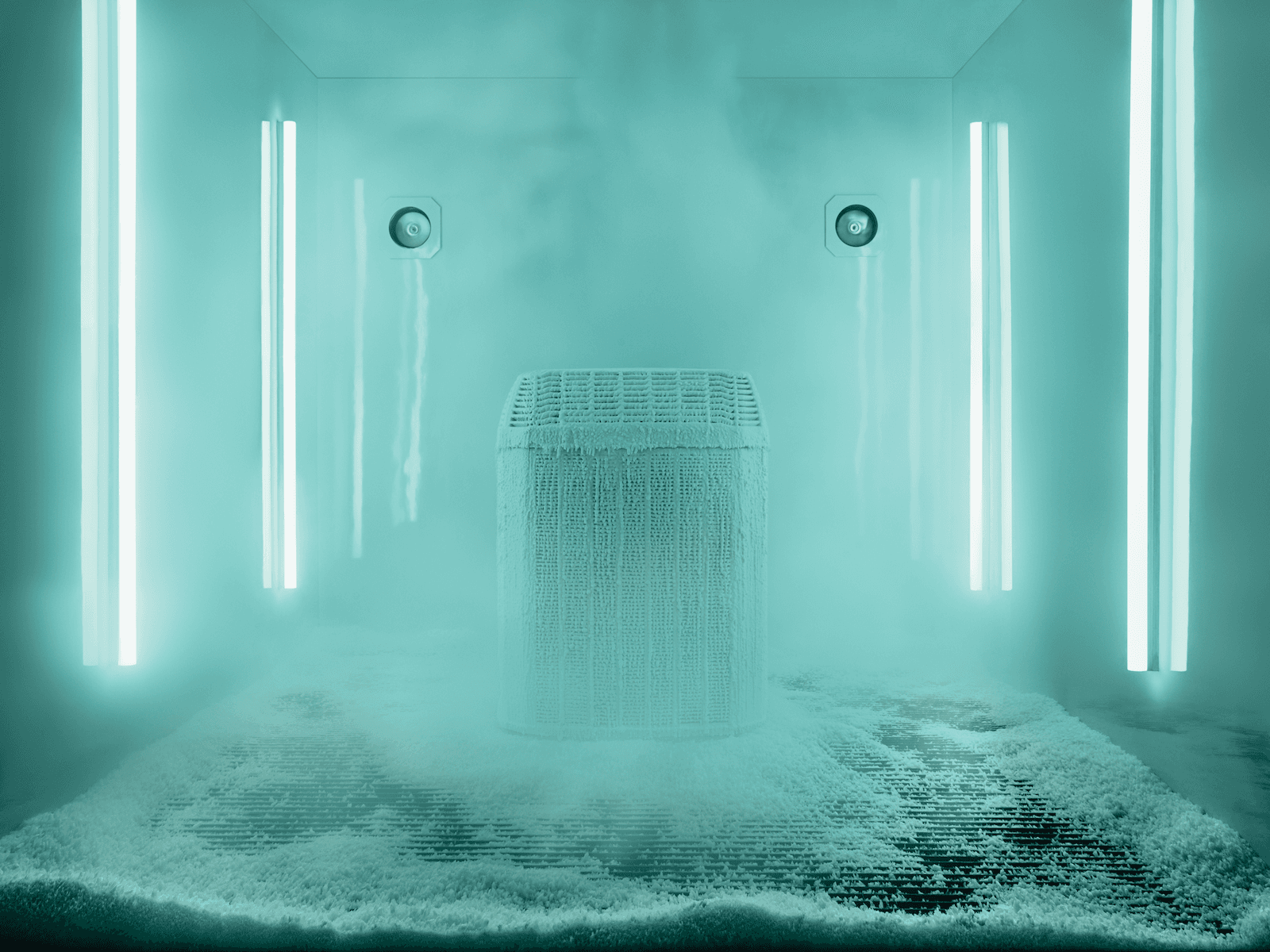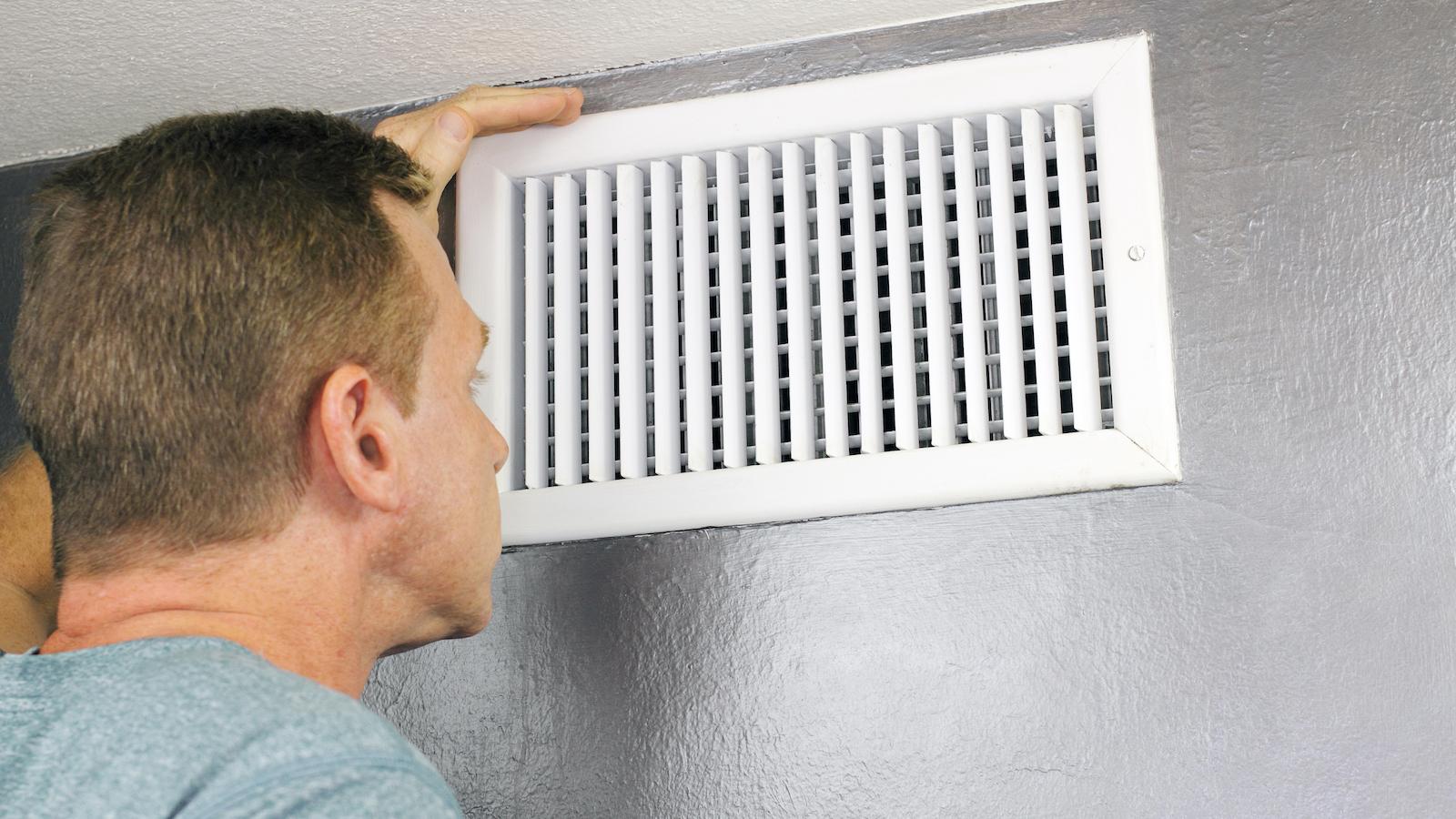Notice Your Air Conditioner Smells Funny? Here’s What It Means.
Warmer weather is coming, and many of us will be turning AC units on in the next month only to find the unit is pumping strange odors through the house. Find out what odors are normal and when to get expert help if your air conditioner smells strange.
It’s not uncommon for an air conditioning unit to release certain smells during the first few uses each season. However, you should never ignore an odd smell coming from your HVAC system. While a musty smell from your air conditioner is normal, some other odors may be a symptom of a more serious problem. Take a closer look at what the different air conditioning odors may mean, what may be causing them, and when to contact your local Trane expert for help.
Four Air Conditioning Smells
Why Does My Air Conditioner Have a Dirty Sock Smell?
One of the more distinct (and unpleasant) air conditioning odors reminds homeowners of dirty socks. The worst part of laundry day wafting through your home is unpleasant, but it is common, especially during the first use of the season. As the name suggests, the smell is musty (not unlike a gym locker room). After a long period of time without use, mold and bacteria can build up on your evaporator coil or other areas of your air conditioner’s HVAC system.
Your air filters are your first line of defense against mold and bacteria build-up. If the smell doesn’t go away, you should first clean or replace your filters. If your filters are new or cleaning doesn’t improve the smell, contact your local Trane Comfort Specialist™ to clean and inspect your ductwork. If you or someone in your family has asthma or a reduced immune system, our CleanEffects™ air cleaner provides an even greater level of protection by removing 99.98% of airborne particles, 100 times better than a 1” standard filter.
If the smell lingers after repeated use, we recommend having your evaporator coil cleaned by a professional. Especially for asthma and allergy sufferers, the mold spores and bacteria that are circulated in the air can cause problems. Other steps you can take include:
- Checking your filters
- Cleaning the drain pan
- Checking your ductwork
You can do this yourself, but your local Trane Dealer will be able to diagnose any larger problems and solve them faster for you.
Fortunately, this is typically not a dangerous issue. It’s also possible that the smell is not related to mold - and even if it is, most molds are not dangerous in most cases. It is, however, annoying, embarrassing, and not something you want to let linger throughout the cooling season.
Why Does My Air Conditioner Smell Like it is Burning?
If you notice that your air conditioner smells like it is burning or like gunpowder, turn off the system immediately and call the local fire department. Once your home is safe, call an expert for help. An electrical burning smell may indicate frayed wiring that has caught fire, an overheated motor, or another dangerous electrical issue. It may also mean something in the unit has short-circuited.
Why Does My Air Conditioner Smell Trash?
Another unfortunate but common air conditioner smell is trash. This may mean that there is something in your HVAC system. During the colder months, many small animals seek shelter and refuge in air conditioning units. If your HVAC unit smells like garbage, it may mean that an animal has passed away in the unit. Turn off your unit, open the windows, and call an HVAC professional.
Why Does My Air Conditioner Smell Like Exhaust?
We typically think of exhaust fumes as coming from cars. However, they can come from your air conditioning unit as well. If you smell exhaust fumes from your AC unit, it may mean there is fluid in your unit leaking into the motor or another warm part of the system. If you suspect fluid is leaking in your unit, turn the unit off and call an HVAC professional. Letting this issue go will make it worse and can cause long-term damage to your unit.
Causes of Air Conditioning Smells
When your air conditioning smells, whether it’s a dirty sock smell or an exhaust smell, it is best to have a professional determine the cause of the smell. However, while you wait for the technician, there are some things you can troubleshoot to eliminate the smell from your home more quickly.
1. Check the drain pan.
As your air conditioner removes humid air from your home, water droplets fall into the drain pan (or drip pan) located underneath the evaporator coils. Over time, the drain pan endures normal wear and tear and eventually needs to be replaced. If left unmaintained, the drip can grow mold, which may cause a dirty sock smell. Consult an expert HVAC professional to inspect the drain pan to determine if yours needs to be replaced.
2. See if the evaporator coils are frozen.
When your unit absorbs warm indoor air, it removes the humidity, cools the air, and pumps the air back through return vents. Air filters must be clean for this process to work properly. If they are not clean, water droplets from the humid air can accumulate on the evaporator coils, which can freeze as the unit’s refrigerant cools the air.
3. Check for excess moisture in ducts.
Ducts are attached to the vents in your home, and when excess moisture accumulates, caused by high humidity levels or a drainage leak, it can result in a musty or dirty sock smell. Your HVAC professional should perform a thorough duct cleaning and repairs to remove the odor.
4. Look for a blocked condensate line.
A small pipe that runs from your home interior to the exterior portion of your HVAC unit, the condensate line drains water from the drip pan into your landscaping or storm drain. If left unmaintained, mold, mildew, and sludge can build up, which leads to clogs and a dirty sock smell in your home.
5. Confirm the correct size of the air conditioning unit for your home.
Your air conditioning unit needs to be the correct size for your home to work properly. If the unit is too large, the air is cycled too quickly, and too much humidity is left in the air, which causes excess moisture to build. If the unit is too small, it will turn off repeatedly, eventually burning the unit out. Ask your local HVAC professional if the unit is the right size for your home’s square footage. The number of people living in the home and the home’s insulation type are other factors in determining the correct size of an air conditioning unit for the home.
Schedule Seasonal Maintenance to Prevent Air Conditioning Smells
The best way to get the most out of your air conditioner (and avoid unwanted odors and issues) is to have a Trane Comfort Specialist™ inspect, service, and provide AC maintenance to your heating and cooling system regularly.
We recommended:
- Air Conditioner: Service once a year. Schedule in spring before the hot weather arrives.
- Furnace or heat pump: Service once a year. Schedule in the late summer or fall before cold weather arrives.
One last tip
If you still have questions or are concerned that your air conditioner is not working the way it should call your local Trane dealer today.




